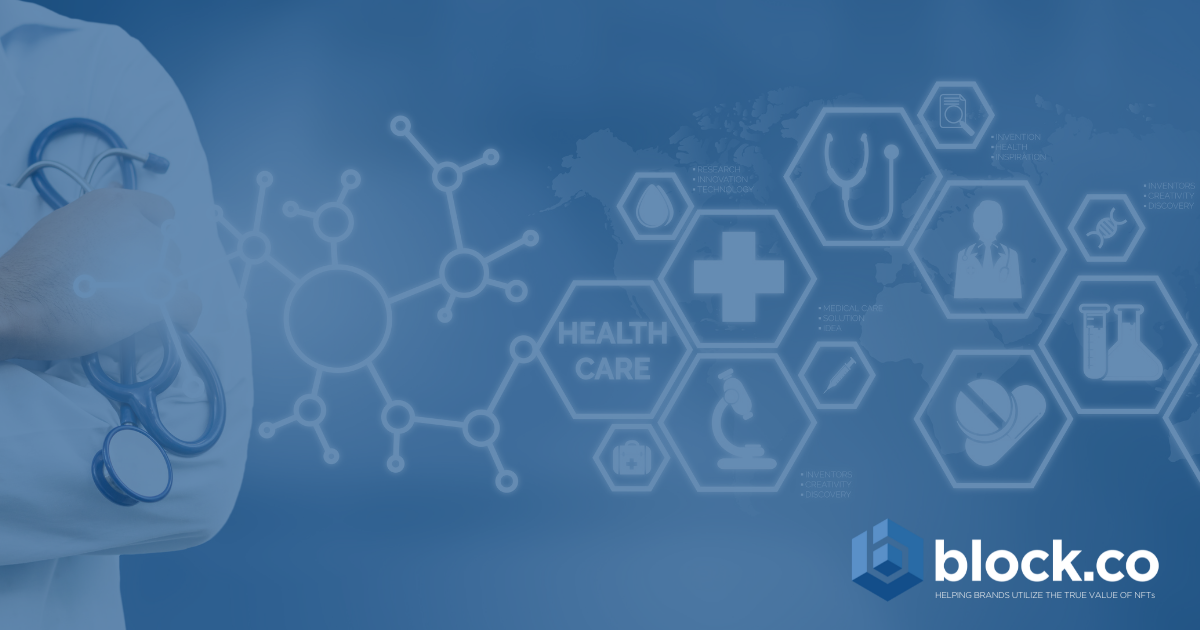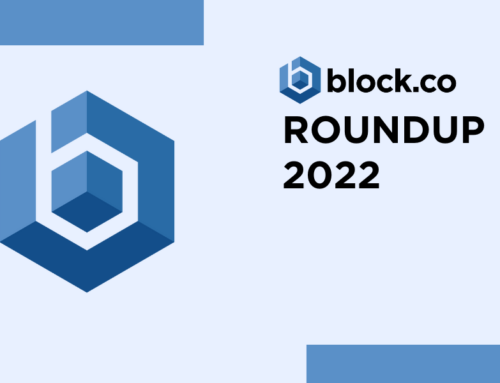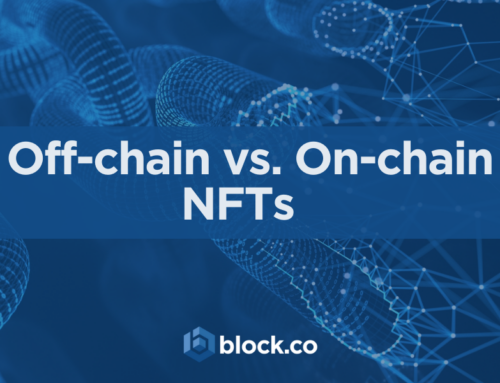Blockchain for Healthcare

The Covid-19 global crisis has undeniably raised concerns over the future of healthcare as a public and private service alike. One of the main issues that have surfaced in the aftermath of the critical weeks that have changed the world, is where to cut costs in order to provide a more sustainable solution to citizens and shift those costs to facilities that can save lives. Blockchain For Healthcare may be the solution, as technology is remarkable when used in proper ways and can be especially useful in times of crisis when smoother and more cost-effective processes are as crucial as ever.
Except for a few cases, blockchain for healthcare is still mainly at an experimental stage like in many other industries. In the last couple of years, we have seen major investments by Venture Capital firms shifting into blockchain for healthcare projects, but most are still at the programming or even at the studying phase, therefore it’s difficult to evaluate its impact in the sector properly. Nevertheless, the Global Blockchain In Healthcare Market Forecast 2019–2027 is estimated that the industry would grow 47.23% by 2027.
One of the few examples of successful blockchain implementation in healthcare is Estonia — a global front-runner in the use of this technology. It started using blockchain in 2016 to secure healthcare data and process transactions. Fast forward to today, all of the country’s healthcare billing is handled on a blockchain, 95% of health information is ledger-based and 99% of all prescription information is digital. Overall, blockchain technology can be used in healthcare as a means to share authentic data, tracking of relevant information, and help speed up the treatment process. In details, it can enable:
- Secure transfer of patient medical records
As there is still no universally recognized patient identifier, blockchain might help create a system that will be able to easily solve the problem of mismatched patient EHRs (Electronic health record) which previously led to errors in patient care and increased the chances of patient harm.
- Management of the medicine supply chain
Supply chain applications are currently the most common use-cases in the healthcare blockchain. They can enhance the traceability of drugs, make supply chains more secure and organized, curb counterfeit medicines tracking, and help fake drug identification.
- Streamline of business processes and payments
This falls within the typical help that blockchain offers to all industries; a secure method to ease processes burdened by bureaucracy and a solution to fast and secure payments.
Facilitating payments to charitable organizations has also been a pivotal role for blockchain during this period. In China, the mobile and online payment platform Alipay has created a blockchain-based solution that helps charities collaborate more efficiently and transparently by tracking donations of relief supplies and help allocate them more efficiently.
- Share of information on patients and research across a multitude of institutions like hospitals and healthcare facilities
Blockchain might be implemented as an architecture of electronic health records intended to transform them into self-sovereign, patient-driven digital assets.
With regards to Covid-19, how could blockchain be instrumental in the current pandemic scenario across the whole healthcare system?
In the last couple of years, China is largely committed to blockchain. At the end of 2019, the Global Digital Bank Consortium Blockchain Investment Fund was announced at a Forum in Shanghai. It will receive funding for around $1B. In the case of the current pandemic, China has set an astonishing example as a country that can use technology efficiently and with great results in tracking the spread of the disease through blockchain epidemic applications, compiling medical records, as well as managing charitable donations and medical supplies.
“Chinese hospitals with COVID-19-infected patients since January 2020 have utilized blockchain technologies in numerous applications, ranging from electronic health care records to insurance claims,” noted Urte Jakimaviciute, a senior market research director at consultancy Globaldata. “The early implementation of blockchain allowed China to leverage relatively quickly existing technological and regulatory bases to contain the COVID-19 outbreak”.
Outside of the healthcare system, it managed to finance small and medium-sized Chinese companies that have been affected by the COVID-19 repercussions.
In contrast, most blockchain applications abroad remain limited and mainly centered on basic information sharing, like in the case of the World Health Organization that, on March 28th, started cooperation with major blockchain and technology companies to launch a distributed ledger technology-based platform for sharing data concerning the pandemic.
Meanwhile, in the EU, a recent report stated that “Blockchain applications could provide a robust, transparent and cheap means of facilitating effective decision-making and, as a result, could lead to faster responses during emergencies of this kind. In the context of this pandemic, blockchain has the potential to become an integral part of the global response to coronavirus by tracking the spread of the disease, managing insurance payments and maintaining the sustainability of medical supply chains and donation tracking pathways.”
One of the main issues for global healthcare facilities and institutions is patient and research breach of data.
Between 2009 and 2017, more than 176 million patient records were exposed in data breaches. Credit card and banking information were stolen, as well as health and genomic testing records. Blockchain’s ability to keep an incorruptible, decentralized, and transparent record of all patient data makes it extremely desirable to security applications.
Healthcare data breaches is another sector where Block.co can help. By utilizing an open and public (or permissionless) blockchain, data is publicly available and complete copies of the ledgers are stored across the globe, making it hard to censor or even hack. It allows users to securely store health records, saving on data management costs. It provides speedy access and reduces the risk of health data manipulation by the issuance of time-stamped digital medical certificates.
Other organizations choose permissioned or private Networks.
Normally these are used in consortium networks, where only well-known and trusted organizations are allowed to participate, and only their nodes can join the network. In permissioned networks, participation is controlled by an authority that provides a membership service for user authentication and identity management. Companies, banks, and institutions that need an easy approach with regulations and are concerned about having complete control of their data, without the need of sharing it across the wide network, will prefer permissioned or private blockchains.
The following are a few examples of companies that are providing excellent value to the healthcare systems by developing blockchain platforms.
Chronicled develops tools and protocols to enable decentralized blockchain networks that support multi-party supply chain ecosystems. It developed the MediLedger Project that combines a blockchain-powered look-up directory with a permissioned messaging network that allows companies to securely request and respond to product identifier verification requests. Only authorized companies can put their products in the lookup directory.
IBM, Merck, Walmart, and KPMG’s teamed up last year to produce a drug-tracing blockchain pilot that has exceeded the benchmarks outlined by the U.S. Food and Drug Administration. Since the pharma supply chain is incredibly complex, given the number of entities and logistics providers and distributors, representatives said a permissioned blockchain network could bring that highly fragmented supply chain into DSCSA compliance.
Blockchain in Healthcare will be the topic of the next Block.co webcast “Bridging Trust in Response to Covid-19”, on June 23rd at 20:00 EEST (17:00 GMT), and will feature high-profile personalities from the industry.
The host will be Georgina Kyriakoudes, CEO at Dcentric.Health and creator of the permissioned blockchain ecosystem app called Aria, which aims to transform the patient healthcare experience by giving individuals full control of their medical records.
The panelists will be:
Dimitrios Neocleous – Ecosystem Manager at VeChain Tech. Recently Bayer China chose VeChain as the tech provider for a new blockchain-powered solution that will allow the firm to track clinical drugs across the supply chain.
Ahmed Abdulla – is the CEO of Digipharm, a permissioned tokenized blockchain platform that facilitates outcome-based contracting in healthcare. The aim is to create a medical information infrastructure that enables all parties to trust this data while sharing it in an immutable and synchronized way.
Alice Loveys – Managing Director of Federal Practice Digital Health and US Healthcare Blockchain at EY. The company has worked for several years on the acceleration of digital health processes using AI and blockchain permissioned platforms.
To register for the upcoming webcast, click here!
If your brand is ready to take the step into web 3.0 and NFT marketing, to optimize engagement with your audience in innovative ways, then click the button below to get your Free Trial, a limited number of Free NFTs, and a Free Consultation call from our team!
For more info, contact Block.co directly or email at enquiries@block.co.
Tel +357 70007828
Get the latest from Block.co, like and follow us on social media:







